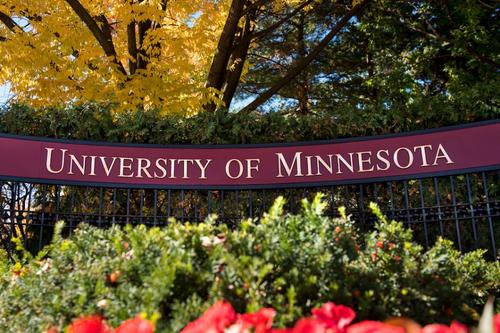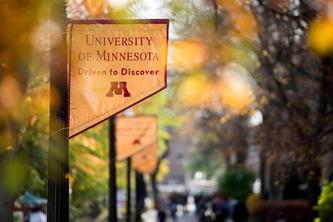U of M shares community-informed recommendations, next steps from review of Twin Cities campus safety and policing

Last September, University of Minnesota President Joan Gabel announced a plan to conduct a comprehensive review of public safety on and around the Twin Cities campus to identify ways in which the values, practices and experiences of the campus community aligned with those of the University of Minnesota Police Department (UMPD). The review was intended to identify areas where the University could make improvements to bring community expectations and UMPD actions closer together.
CL Alexander Consulting, led by Dr. Cedric Alexander, an expert in law enforcement with over 40 years in public safety, was selected to conduct the review. His work involved meeting with more than 200 University community members representing more than 30 organizations and groups. These conversations, along with input from online and written submissions, additional research and analysis, led to dozens of recommendations to further align UMPD and the campus community it has served for many years. Dr. Alexander’s report included those recommendations, along with additional findings and context, and was recently shared with Gabel and the University’s Board of Regents. The full report is available on the president’s website.
“This review is an important next step in learning more about what it means for all members of our campus community to feel respected, included and safe,” Gabel said. “We set out to engage with members of our community, and to hear and discuss diverse perspectives on public safety. We are incredibly grateful to the many people who invested their time to share their experiences and help shape this report. Together, we will continue the hard, sustained work needed to create meaningful change based on these recommendations.”
A key finding in the report is that divergent views exist on policing and the presence of uniformed police officers on campus. In fact, the report cites “an undeniable tension” between those who feel more policing is the solution and those who feel more policing is the problem. Acknowledging these distinct viewpoints, as well as many that land somewhere in between, the report distilled a set of six aspirational goals intended to reflect the collective voice of those who participated in interviews. To work toward these goals, Alexander’s report outlined eight broad categories for response upon which findings, recommendations and proposed action steps for the University were built.
Gabel had previously shared her expectations that this report and its findings would help shape how the University would address short- and long-term public safety concerns. On Tuesday, she offered more specifics on her planned approach in a Twin Cities campus-wide message in which she committed to immediately act on four of the report’s recommendations:
- Equipping UMPD officers with body cameras;
- Continuing regular meetings with the mayors of Minneapolis and St. Paul to keep communication lines open and to coordinate, as needed, on public safety issues;
- Purchasing and distributing the Rave Guardian™ campus safety app to all students, faculty and staff; and
- Transitioning Department of Public Safety/UMPD oversight to Senior Vice President for Finance and Operations Myron Frans’ portfolio.
Gabel also announced the creation of the M Safe Implementation Team, an advisory group that will include students, faculty and staff, which will consider and analyze the recommendations from the report, consult with University governance groups and other key University stakeholders and community partners and provide a final action plan to Gabel by a date to be determined.
Gabel and the Board of Regents are expected to hear a presentation of the report’s findings from Alexander, and to discuss the report and next steps, at the Board’s February meeting.
While the report explicitly focuses on identifying areas for improvement, it also recognizes the strengths of UMPD. The department has taken significant steps to broaden officers’ skill sets in de-escalation, mental health and cultural sensitivity, as well as to enhance community relationships. UMPD has implemented nationally-recognized and forward-looking approaches from the Task Force on 21st Century Policing and Campaign Zero’s “8 Can’t Wait” program to install policies and practices aimed at improving trust and legitimacy. This commitment to ongoing change as a modern police department supports UMPD’s unique mission to serve the University’s Twin Cities campus, a jurisdiction unlike any other in the state.
Progress on this important public safety work will be provided through regular updates to the new M Safe webpage.
- Categories:
- Campus Affairs





